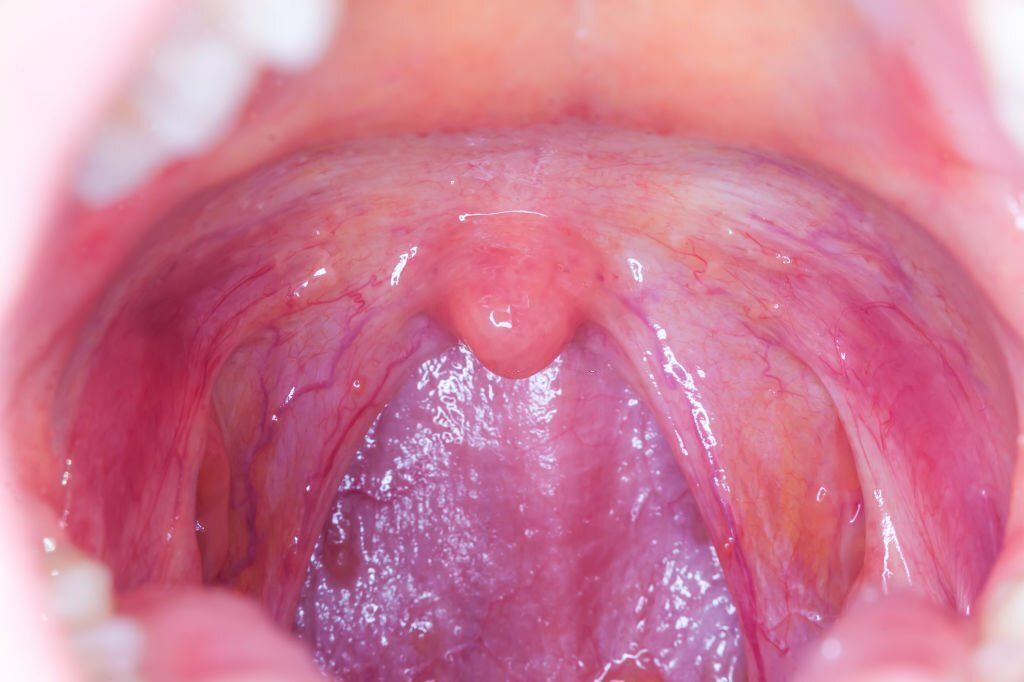This article is reviewed, corrected, and approved by: Dr. Benjamin McLean M.D. | FCPS | FRCP | MPH
Tonsils are a part of the human body that works as a part of the immune system. It also saves from various diseases. Many people wonder if tonsils can grow back after undergoing a tonsillectomy!
For those who are unfamiliar with this term, we are about to discuss it. There are two tonsils on either side of the throat that can be removed by a surgical procedure called tonsillectomy.
In this article, you and I will explore together whether tonsils can regrow, the factors affecting their regrowth, and how to maintain good tonsil health.
The Functions of Tonsils
Mouth and nose are the doorways to bacteria and viruses entering the body. The tonsils play a crucial part in the immune system's defense mechanism, shielding the body against infections. They are helpful in fighting off infections, and they can also become infected or enlarge themselves.
When is Tonsillectomy Needed?
A tonsillectomy is typically performed for specific medical conditions, such as recurrent tonsillitis, removing tonsil polyps, sleep-disordered breathing, or complications from enlarged tonsils.
Recurrent tonsillitis refers to multiple instances of inflamed tonsils within a year, causing pain, difficulty swallowing, and other discomforts. Sleep-disordered breathing involves disruptions in breathing during sleep, often due to tonsillar obstruction.
The Tonsillectomy Process
During a tonsillectomy, a surgeon removes the tonsils through surgery or techniques like coblation or laser tonsillectomy. Usually, these processes necessitate the use of general anesthesia, and the tonsils are meticulously extracted using tonsil stone removal tools and specialized tools. The operation typically lasts anywhere from 30 minutes to an hour.
Post-Tonsillectomy Recovery Period
After a tonsillectomy, a recovery period is necessary to allow the throat to heal. Discomfort and swelling are common things, but no severe consequences are often seen. Here are some details about the recovery process:
Common Symptoms After Tonsillectomy
After tonsil surgery, patients can experience pain in the throat, mild swallowing, and sore throat. Some individuals may also experience bad breath, a mild fever, or a white coating on the tongue. These symptoms typically subside within two weeks.
Healing Time and Pain Management
Recovering from tonsil surgery takes 10-14 days. Pain management is crucial, and doctors may prescribe medication or suggest over-the-counter options like acetaminophen or ibuprofen.
Can Tonsils Grow Back? Is It Even Possible?
Here is the most awaited question: Whether tonsils can grow back after a tonsillectomy has long been debated. Some anecdotal evidence suggests that tonsils can regrow, leading to concerns among those who have undergone the surgery.
It is possible to have tonsil regrowth on one side or even both sides. Regrowth of tonsils is not impossible, but it is extremely rare.
Symptoms of Tonsils Growing Back
Common signs of tonsil regrowth are sore throat, difficulty swallowing, increased snoring, bad breath, enlarged tonsils, voice changes, ear discomfort, or breathing issues.
It can also increase the risks of asthma. Learn more here: Is asthna an autoimmune disease?"
Disagreement on Tonsil Regrowth
While there are many people who claim that their tonsils have regrown, it's important to note that such cases are relatively rare. The perception of regrowth might stem from the regenerative capacity of the tonsils' tissues, which can generate scar tissue and give the appearance of regrowth.
Scientific Evidence and Studies Behind Tonsils Growing Back
Several scientific studies have shown that complete regrowth of tonsils does not occur after a tonsillectomy. But it is also possible for residual tissues or small remnants of tonsil tissue to remain after the tonsil is surgically removed. These remnants can sometimes mimic regrowth but do not indicate a complete reconstruction of the tonsils.
Factors Affect Tonsil-Regrowth
The presence of residual tonsil tissue might be influenced by factors such as the surgical technique used, the age of the patient at the time of surgery, and individual healing characteristics. Newer surgical techniques, such as coblation and laser tonsillectomy, may result in less residual tissue compared to traditional surgery.
How to Manage Tonsil Regrowth?

In cases where residual tissue causes significant problems or discomfort, further surgery may be required. Seek the advice of an ear, nose, and throat specialist (ENT) to assess the situation and decide on the most appropriate action. In some instances, alternative options like watchful waiting or non-surgical interventions may be recommended.
Beneficial Tips for Maintaining Good Tonsil Health
While tonsil regrowth is not a common occurrence, it is crucial to maintain good tonsil health to minimize the risk of complications. These are some suggestions for keeping your tonsils healthy:
Maintaining Good Oral Hygiene
For preventing the buildup of bacteria reduces the risk of tonsil infections. Regularly brushing your teeth, using mouthwash, and gently cleaning the back of your tongue can help keep your mouth clean and fresh.
Strengthening Immune System
A strong immune system can aid in preventing tonsil infections and reduce the likelihood of complications. The ability to maintain a healthy immune system can be enhanced through a balanced diet, adequate sleep, physical activity, and stress management.
Conclusion
It is highly unlikely for tonsils to fully regrow after a tonsillectomy. While some individuals might perceive regrowth due to residual tissue or scar formation, the chances of a full reconstruction are minimal. Properly maintaining oral hygiene and a healthy lifestyle can improve tonsil health and prevent complications.
Frequently Asked Questions (FAQs)
Q1: How much time does it take to heal tonsils on their own?
Ans: Generally, it takes approximately seven days to two weeks to fully recover following a tonsillectomy procedure.
Q2: Is tonsillectomy a painful procedure?
Ans: Tonsillectomy is associated with pain and discomfort; it is true. Therefore, the advancements in pain management have helped minimize it. It may take about one to two weeks, during which some throat pain or discomfort is normal.
Q3: Can tonsillectomy affect speech or voice quality?
Ans: After a tonsillectomy, speech or voice quality may be temporarily affected, including hoarseness, nasal quality, and articulation differences are included.
Q4: Can tonsils grow back after 10 years?
Ans: Tonsils can grow back after 10 years; it's very rare. If they do, they'll be smaller than before.
Q5: Are tonsil stones contagious?
Ans: There is a myth around it. Tonsil stones or tonsil stones without tonsils are not contagious.
Q6: Can vaping cause tonsil stones?
A: Vaping may indirectly contribute to tonsil stone formation due to factors like dry mouth, altered oral bacteria, throat irritation, and reduced immune function.
Q7: What is the cost of getting your tonsils removed?
A: Tosil removal cost basically depends on several factors. Usually, the cost may vary from around $2000 to $5000.


